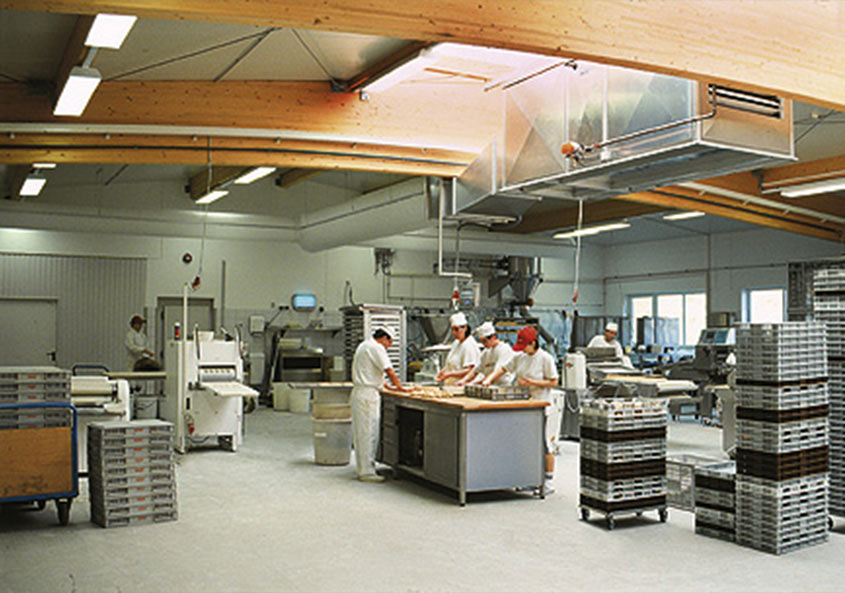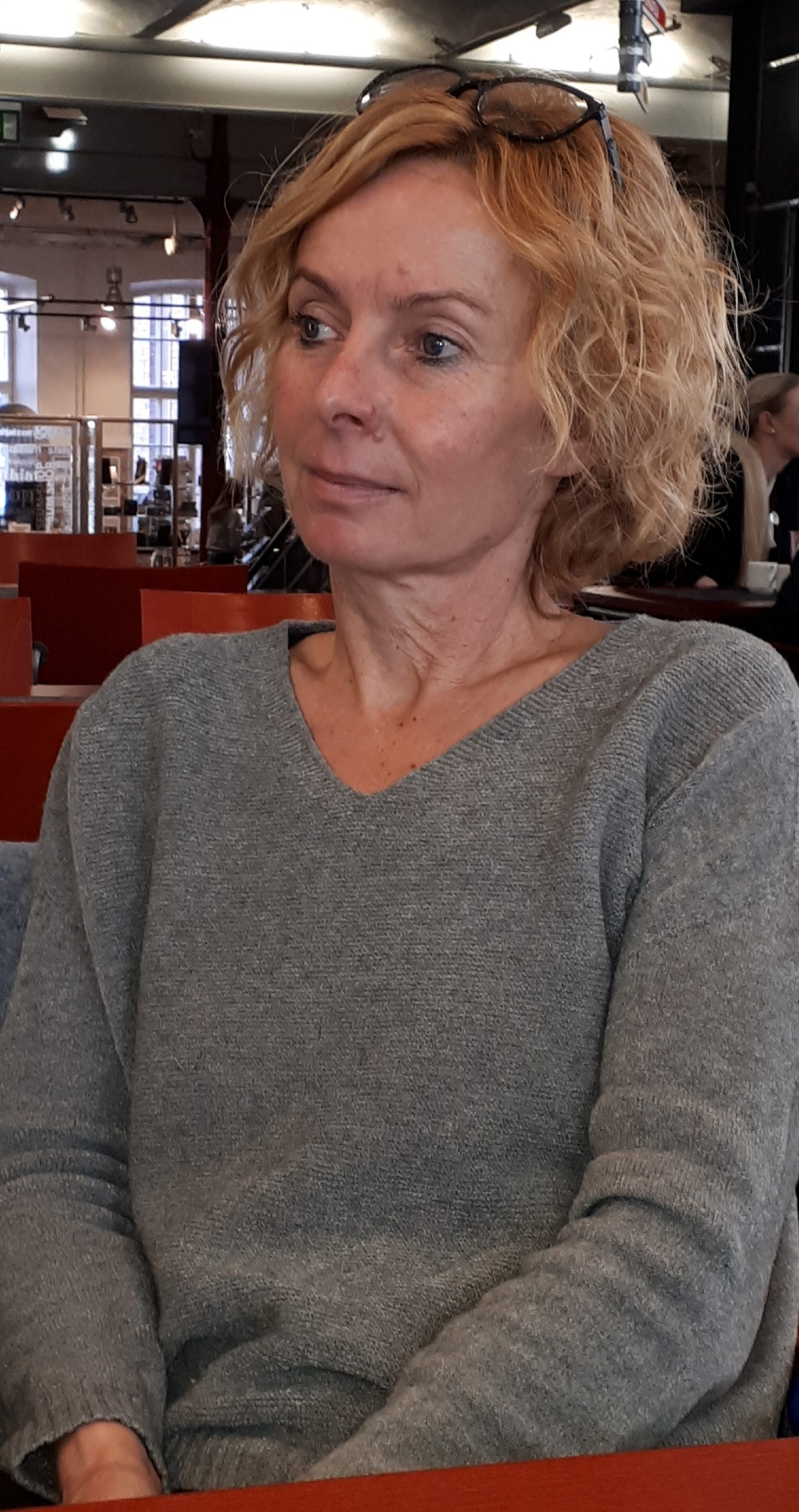Bio Vollwertbäckerei Gradwohl GmbH
Interview with Emma Gradwohl
Specialization
The bakery Gradwohl is a family business, founded in 1959 by Johann Gradwohl, the father of the current managing director, Peter Gradwohl.
This family business in Burgenland is characterized by a love of craftsmanship, care in handling baked goods and unique know-how about various cereals.
The company founder can be described as a visionary. Already in the 1960s he recognized the potential and importance of healthy nutrition and already specialized in organic and whole grain products at that time. He succeeded in convincing customers of rich and at that time rather unknown wholegrain bread and thus built up an innovative bakery.
In 1996, Peter Gradwohl, the current managing director, master baker and pastry chef, took over his father’s company. Within a few years, the family business expanded far beyond its location. Branches were established in Vienna, Lower Austria and Burgenland. With new creative ideas and specially developed innovative recipes, it was possible to create new creations and enrich the range.
Today, the company has 17 locations and employs around 135 people.
The company produces only full-fledged organic products, the website has an extensive online assortment and a detailed lexicon of the cereals used.
Sector
Secondary: Food production, bakery
Country
Austria
Web-site
https://www.gradwohl.info
Main reasons and motives for the decision to implement the age management measures
Difficulties in finding enough highly qualified staff for the bakery led to our process of introducing age management. We wanted to get behind it, why hardly any of our highly specialized employees remained in employment until the age of retirement.
- Like all over the Western world also here in the next 10 to 12 years more than 30 % of the workers and employees will be retired. Since the bakery was growing fast in the last decades, a big share has been permanent staff coming from places next to the production and headquarters of the company. It will be complicated to substitute those workers. First, because there are just less young people living in the area. Second, because not so many younger people want to to work in production.

- Most of the work in the production is very specific and it takes a long time to be a full trained co-worker. Therefore one needs to have a long-term strategy to go on smooth without troubles in quality and/or quantity.
- The elder staff feels strong commitment to the company, what the youngers are missing. The company will need good arguments and offers to convince young people to work with them.
- Another important aspect is preventive medical care. This company deals with food, so it is particularly important that the employees are healthy. The lungs in particular need to be examined regularly, as the constant use of flour can cause damage. So here you also need well developed health care plans.
Age management dimension
Health Protection
- Regular check-ups (especially for bakery staff)
- Good ventilation of the break rooms
- Recommendation of balancing gymnastics (especially for employees of the bakery)
Flexible Working Time & Exit Strategies
- Timely preparation for retirement, planning of staff deployment
- flexible transition forms into retirement
- gradual reduction in working hours
- possible change of activity
Comprehensive approach
- Promoting communication in the company, improving the corporate culture
- Commitment to avoiding problems with age management;
- Concentration on the whole sector of the company, all activities and all age groups, not only older workers. In this way, all employees are included in their diversity.
Expected results:
- More employee satisfaction with their workplace
- More understanding of the difficulties and conditions of the different areas of work among themselves (bakers; Ladner; Chauffeurs; salesperson in branches, administration, management)
- sustainable integration of new employees
- Transfer of knowledge between generations
- Less sick leave and longer commitment in working life, especially for highly qualified employees
We expect the healthwise opportunity and the emotional willingness of the employees to work longer than 60 years. The aim is to discuss the subject of different age groups and generations openly and to avoid whispering behind the backs of the younger or older ones – “one against the other”. By openly discussing and implementing measures, we want to increase our understanding of the benefits for all age groups.
Our way towards the age management
In 2017 we started our big project. We did a survey about „Satisfaction at the workplace“ to learn about the staff’s needs and ideas. This was done by a professional institute and all employees in production, administration and the retail shops could take part. This was the beginning of a new age in our company! The employees felt important, valued. For the first time they were asked! They started talking to each other, wondering what could be done or organized better at work and how they could help each other!
That was a big surprise for us at management level. We knew that we had “good” and capable employees. But that they wanted to get actively involved in order to improve their workplace and actually work even faster, we never expected that!
Further team meetings were organized in cross-sectional groups: the youngsters, under 30 years old, those between 30 and 50 years and those who were older than 50. And then another meetings, according to occupations were installed: the workers in the bakery and in delivery, employees in sales and in administration.
That was a very complex process and took more than a year, because baking industry also has very different working hours. We actually work almost around the clock!
The biggest success of this survey was certainly that people talked to each other a lot more. They could see that colleagues also have problems. Together, they thought about how things could be sorted. And some problems could be solved very easily, e.g. more light in the parking lot, soft drinks at the workplace, clarity about bonus systems, etc.
Further results from this survey:
- Medical preventive care, with a special focus on the lungs, was established as a standard examination. Each employee can have this examination once a year.
- Male and female employees with young children are preferred. They can choose for example a later start of work. Or they can block their workload to some longer working days and are free on the other days.
- Partial retirement is another advantage that is made possible for all employees. This measure is still fairly new for us and has to be adapted again and again.
Strengths and weaknesses of our approach
Strengths:
- The survey was a big success, the employees were very proud to be asked for personal satisfaction with their workplace, workload and their ideas. The mood in the whole company grew essential.
- The younger employees really appreciate the possibilities of special working hours. They are very happy with these possibilities.
- The discussions among the staff were great and brought people together.
- The management committed itself to follow the suggestions from this survey and has plans to ask people regularly in an informal way.
Weaknesses:
- The management had doubts whether the questions were really answered honestly. There was and still is a supposition that people were too polite and kind with their answers and didn’t dare to be really honest. They probably feared negative consensus for their professional future. However, this was not expressed openly and remained as a doubt.
- The older workers are sometimes jealous or angry about the preference given to the young.
- Some employees had very high expectations that could not be met.
- The whole process cost a lot of time and money. The company cannot afford to do that regularly. Profit marges in the bakery sector are very low. Probably in about 10 years the company plans do it again.
Activities to sustain this initiative
The initiatives like health care or time blocking will continue.
Another recognition is the importance of explaining the company’s philosophy to new employees.
- What does the company stand for?
- What do we want to achieve?
- How important are our employees to us, the management?
There is now a written schedule for the integration of new employees:
- There are two weeks to familiarize yourself with the branches.
- One or two weeks in the bakery.
- The specialists have a lot more time, definitely several months.
Room for talking and gossip is important! This is also being pushed by the management.
The management also explains their problems to the employees and asks for understanding for special work situations, such as “summer business” or “winter business”.
Once a year there is a common festive event for and with all employees. It doesn’t necessarily have to be a Christmas celebration – for example, it was an autumn festival last year.
Monitoring system of the effects
It is important that at least one person also takes care of the personnel deployment and personal development. The company needs to know its employees and use them in the right place. For example, the sick leave must be checked and if something is noticeable, it must also be discussed with the employee. It’s possible that people are simply misplaced and that they feel much more comfortable elsewhere in the company. In order to monitor the measures already taken and to ensure quality as an employer, we are busy setting up our own HR department. A young specialist is being trained for this purpose.
Beneficial effects of the initiative
- Setting up a dedicated HR department is a direct impact of the age management initiative.
- The working climate has improved considerably and the mood among the employees has changed positively. When employees are allowed to have a say, they feel more connected to their workplace.
- The intergenerational communication improved a lot. If they know more about their colleagues, they are easily willing to help them. In this way, the generations can work together much better. When they laugh together, the generations can understand each other much better.
- The new health care options and the new working time models are welcome, so employees will be able to stay in employment for longer.
The Aha! moment experienced during the process
This was the beginning of a new era in our company! The employees felt important, valued. They were asked about their opinion for the first time! They started talking to each other and wondered what could be done or organized better at work and how they could help each other! That was a big surprise for us at management level. We knew we had “good” and capable employees. But we never expected that they wanted to get actively involved in order to improve their workplace and actually work even faster!
Our recommendation
For me, the most important thing is that all employees come together. Production and retail stores are far apart, people don’t see each other if management doesn’t organize it. But at least once a year it must be.
At regional level, even a monthly meeting would be required. For a cup of tea or coffee, staff can exchange ideas. They can also discuss what they don’t like about their work and hear how others are doing.
“By talking to each other, people learn to understand each other,” one says. For example, the shop assistant does not know how difficult it is to produce bread of the same quality and shape every day. Or how tight the driver’s schedule is to deliver all goods on time.
Communication enables mutual understanding. With an open communication process, employees can also represent the company well to the outside world. If they like to work, they work better.

